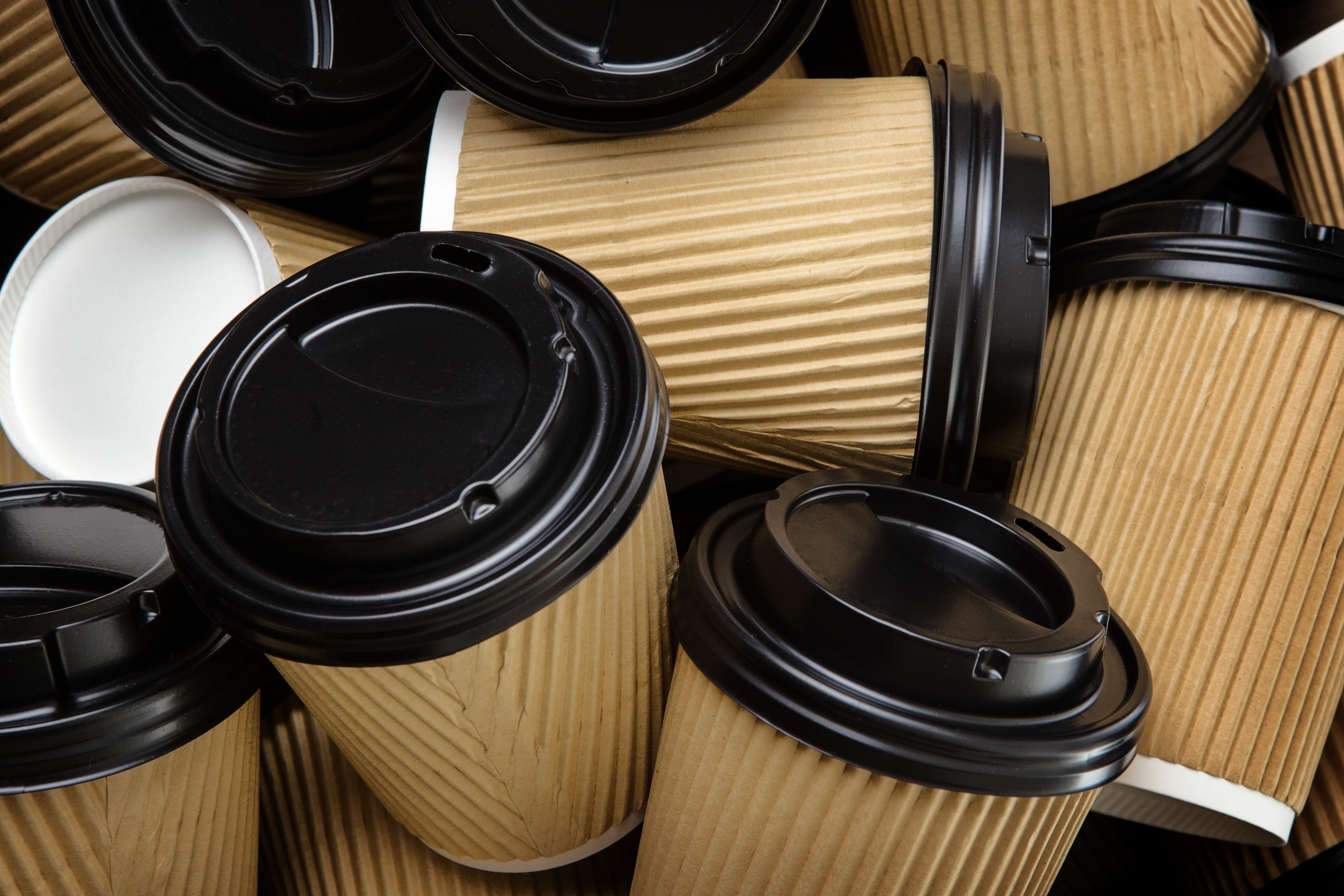
CHARGING coffee lovers for a disposable cup could cut their use by up to 300 million a year, new research suggests.
An estimated 2.5 billion disposable coffee cups are used in the UK each year, creating approximately 25,000 tonnes of waste.
Academics at Cardiff University tested a series of measures to encourage the use of re-usable cups.
The research found that financial incentives, re-usable alternatives, and clear messaging reminding customers of the environmental impact of single use coffee cups all had a direct impact on consumer behaviour.
Charging for disposable cups increased the use of re-usable coffee cups by 3.4% and environmental messages in coffee shops and cafes saw a rise of 2.3%.
There was another 2.5% hike with the availability of re-usable cups and the distribution of free re-usable cups led to a further boost of 4.3%.
The study found the provision of free re-usable alternatives combined with clear environmental messaging and a charge on disposable cups increased the use of re-usable cups in one cafe from 5.1% to 17.4%.
Report author Professor Wouter Poortinga said: “While the increases for individual measures were modest, the greatest behavioural change was when the measures were combined.
“Our results show that, on average, the use of reusable coffee cups could be increased by up to 12.5% with a combination of measures.
“With this in mind, the UK’s usage of an estimated 2.5 billion disposable coffee cups each year could be cut by up to 300 million coffee cups.”
He said the most notable finding was that, while a charge on disposable cups increased the use of re-usable coffee cups, a discount on re-usable coffee cups had no impact on their usage.
“There is an important nuance when it comes to financial incentives,” he said.
“People are far more sensitive to losses than to gains when making decisions, so if we really want to change a customer’s behaviour then a charge on a disposable cup is more likely to be effective.”
Cardiff University worked with coffee roaster Bewley’s to produce the findings, which will be submitted to the Government’s inquiry into coffee cup waste.
Louise Whitaker, from Bewley’s UK, said while it may be difficult to persuade customers to change their ways, companies had a responsibility to play their part in solving the coffee cup waste problem.
“There is a huge amount of waste being sent to landfill each year and promoting re-usable cups is part of the solution,” she said.
“As a company we are committed to working with our cup providers and customers to provide a solution to the problem.
“The research is a really useful step forward in knowing how best to steer people towards bringing their own cups.”
The research was carried out between September and December last year and involved 12 business and university cafe sites.

Enjoy the convenience of having The Sunday Post delivered as a digital ePaper straight to your smartphone, tablet or computer.
Subscribe for only £5.49 a month and enjoy all the benefits of the printed paper as a digital replica.
Subscribe